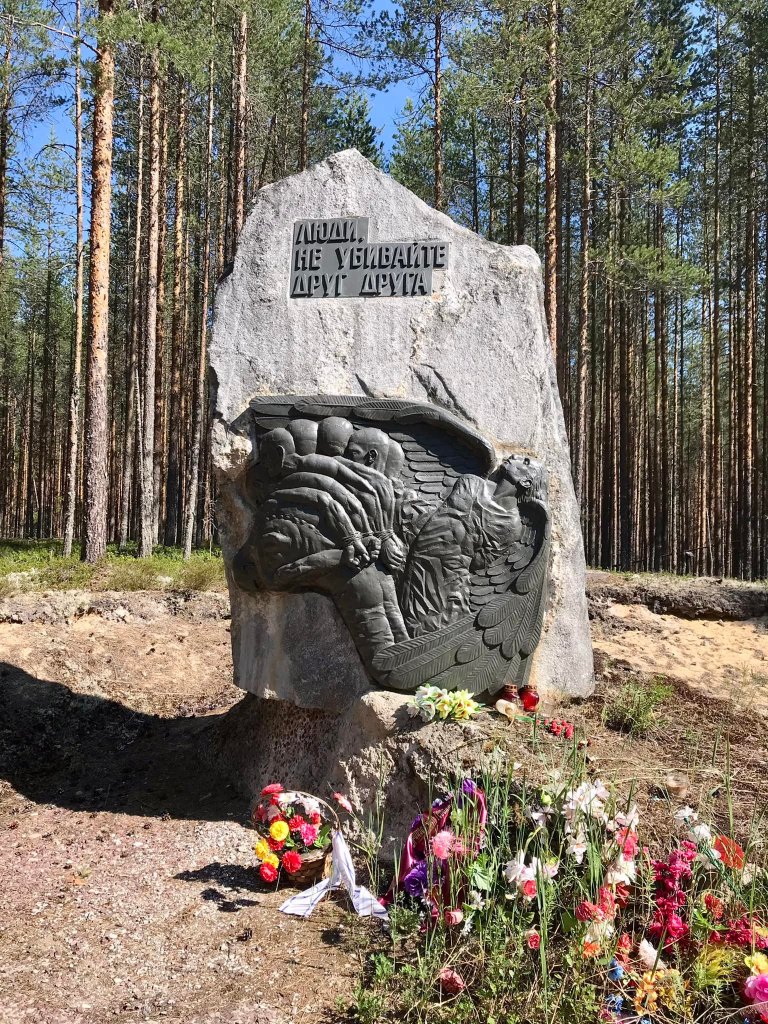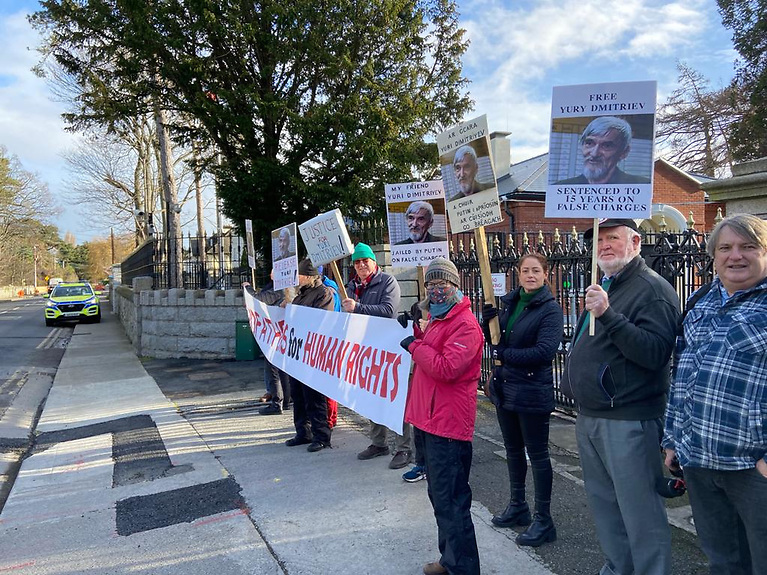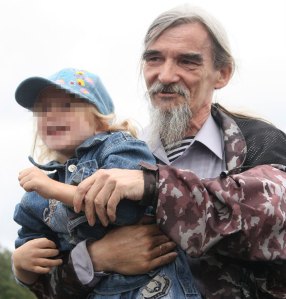In 2002, five years after the tragic death of Ivan Chukhin, Yury DMITRIEV published the Commemorative Lists of Karelia. This Book of Remembrance named 14,308 individuals — most of them shot (11,275); others sent to the Gulag (1,958). The task on which Chukhin and Dmitriev had embarked almost a decade earlier was completed.
Why we should admire Yury Dmitriev
Police investigator and Duma deputy Chukhin also gained access to detailed execution reports in the local FSB archives. These indicated the approximate location of thirteen execution and burial sites scattered across Karelia.
Most were small but two were of particular size and importance. Over 3,000 had been shot, “near Petrozavodsk”, the capital of Karelia. The other site, “near the Medvezhya Gora rail station”, accounted for several thousand more and was located not far from the headquarters of the White Canal camp system (Belbaltlag). Shortly after Chukhin’s death, Dmitriev together with Irina Flige and the late Veniamin Joffe found and identified the killing field near Med Gora, today famous as Sandarmokh. Soon afterwards locals led him to a similar site 20 miles from Petrozavodsk: this became the Krasny Bor memorial complex.
30 October 2021, Krasny Bor
Dmitriev’s achievements could not be gainsaid. Russian and foreign awards followed: in 2005 he was given the new Golden Pen of Russia award; in 2015 he was awarded Poland’s Gold Cross of Merit; and in November 2016, the month before his arrest, he received the Honorary Diploma of Karelia, the highest award in the gift of the head of that Republic.
Why the FSB hates and detests him
Long before 2016 there were signs of official irritation with what Dmitriev did and said.
Continue reading →





